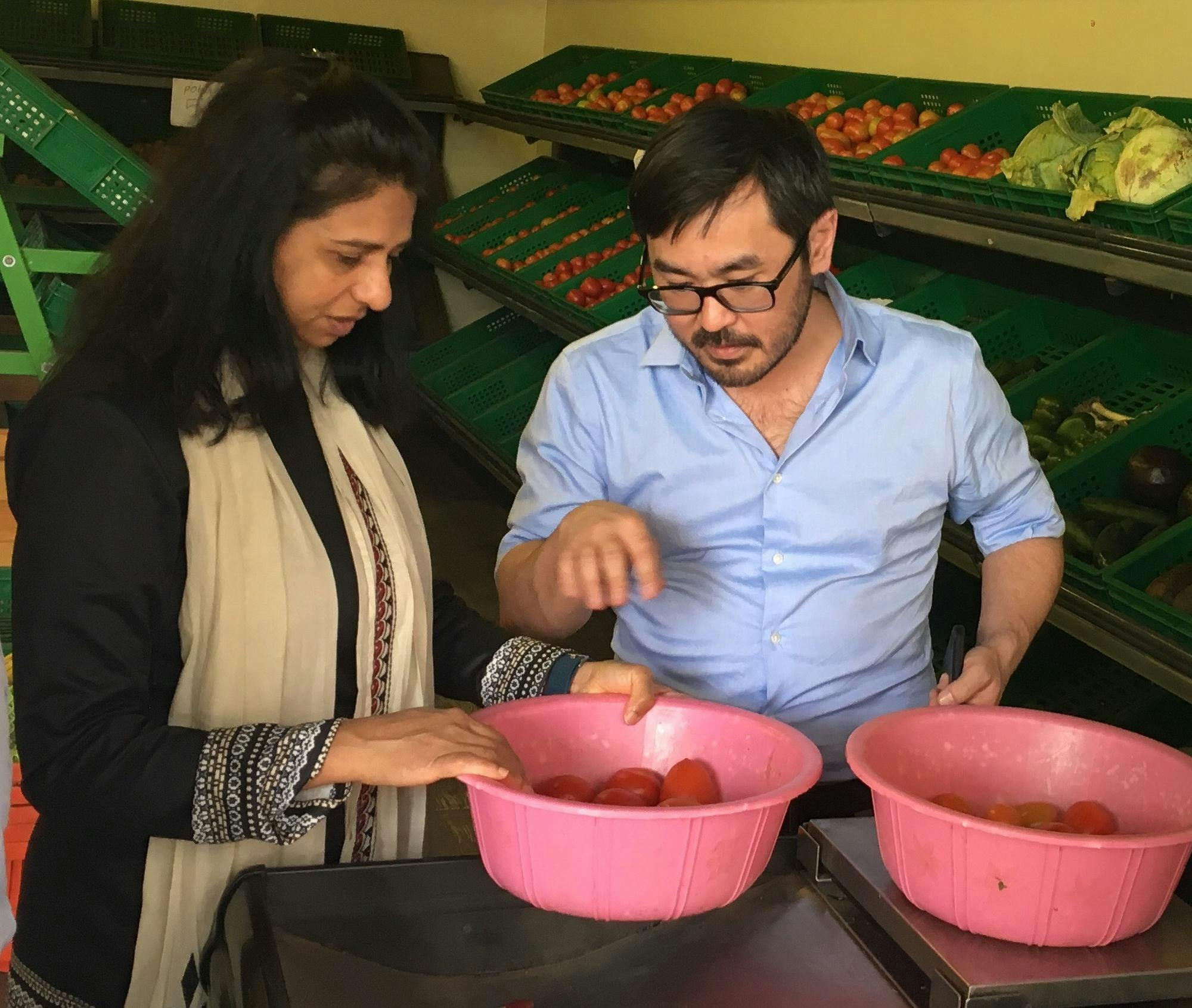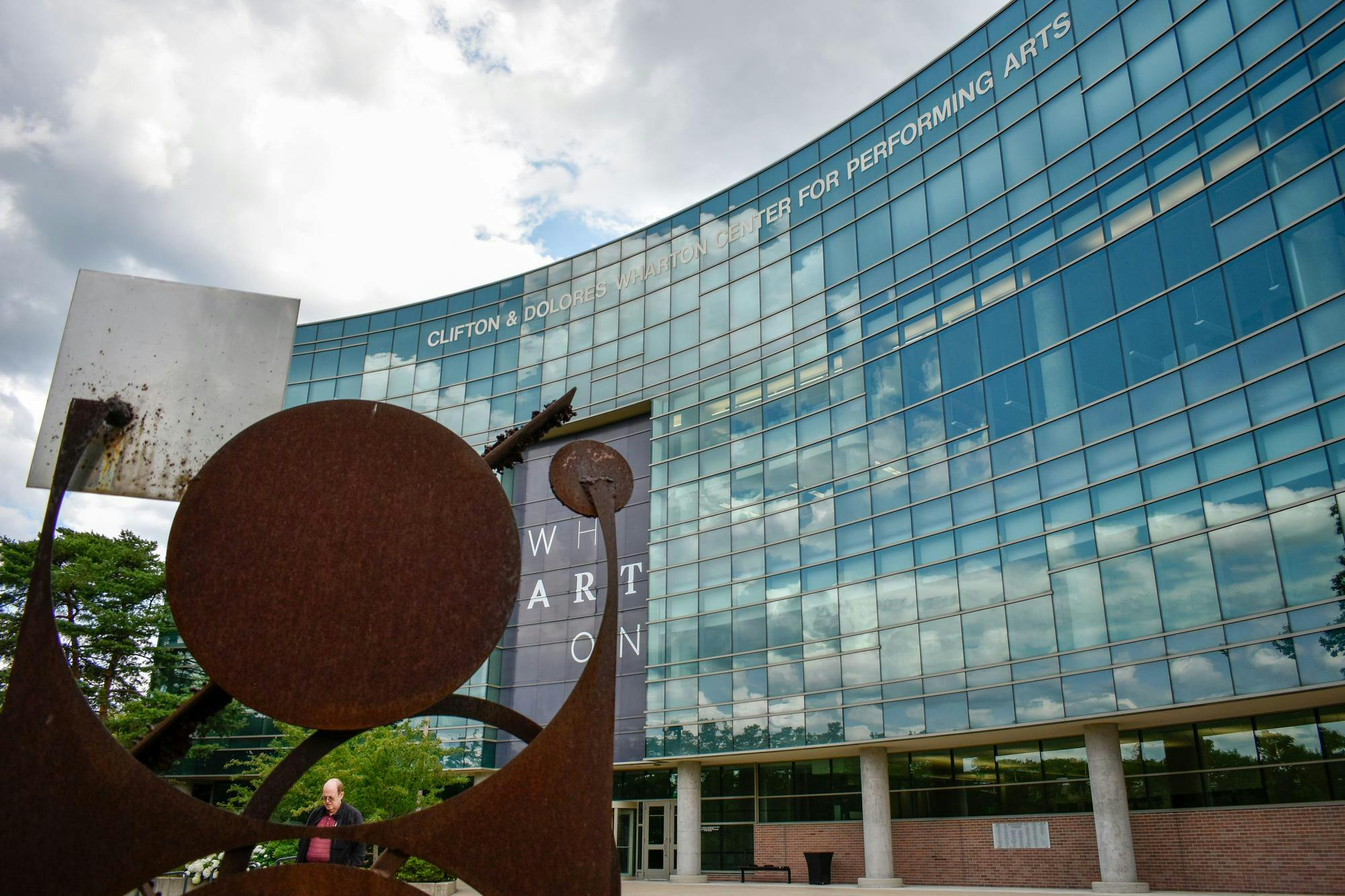Michigan State University professor Mywish Maredia was on a plane to Myanmar when she heard that the federal government had just frozen USAID. Upon landing in the country — where she operates a USAID funded project aimed at improving policy relating to food security — she was instructed to turn right back around and come home.
Maredia is one of many professors across the university who has been left in limbo by the freeze on U.S. Agency for International Development (USAID). Like many whose work has been impacted by vast changes at the federal level since President Donald Trump took office, the researchers are now playing the waiting game to see what their programs may look like — or if they will even exist — after the freeze expires at the end of March.
The freeze was implemented on Jan. 20, after Trump signed an executive order titled Reevaluating and Realigning United States Foreign Aid that placed a 90-day suspension on all foreign aid. In line with this order, Secretary of State Marco Rubio paused all assistance funded through USAID.
USAID is a government agency that provides international humanitarian assistance. The agency provides an array of programs and aid, some of which is done through grants given to universities for projects that provide help to countries in need. The order required these programs to stop work for the 90-day period during which they would be subject to review.
"I don't know what will happen after March 31," Maredia said. "There is a big uncertainty as of today on whether we will be given permission by USAID — or if USAID exists — or maybe some other government agency that takes over those portfolios, if they send us a memo saying 'go ahead, continue your work,' or maybe we won't hear anything, or we might hear to stop everything."
Maredia, whose project is part of the Department of Agricultural, Food, and Resource Economics’ Food Security Group, is one of many professors in the department whose work is largely funded by USAID, alongside other federal and privately funded grants.
"We've had to stop work. We've had to stop spending money on all but salaries and other costs that we simply could not simply cancel," said David Tschirley, a professor in the department and director of the Food Security Group.
The impacted projects
The Food Security Group (FSG) is made up of faculty and graduate students who collaborate with local partners and shareholders in other countries to increase food quality and security through applied research, policy analysis and advising.
"We do it in a highly collaborative fashion with local partners, and we do it in a way that primarily now our local partners engage a lot with local stakeholders and policy makers … all with the goal of helping food systems perform better, so that more people have greater access to the kind of food that they need," Tschirley said.
Maredia’s project is called Sera Bora, or "better policy" in Swahili. By improving the policy environment in the country, the project seeks to promote private sector investment.
"It increases the farm productivity by giving farmers access to input credit and better markets to sell their goods, better policies to increase the overall environment of doing business in terms of investments in the fertilizer sector and industries that promote the growth of the agriculture sector to increase production of food, and improve the availability of an access to food for all people in the country," Maredia said.
Including Sera Bora, Maredia said that around 75% of her work is funded with federal grants, the majority of which come from USAID. She also works on projects in Thailand, Kenya and Myanmar.
A key aspect of Sera Bora and all projects done through the FSG is working with local organizations and stakeholders.
"Our philosophy is … work with local partners, build that capacity, because they are the ones who know the local culture and environment and are better connected to the partners, to the government, to effectively make changes and influence the policies," Maredia said.

In MSU's College of Education, similar, localized work is being done.
The college’s Transforming Higher Education Systems, Malawi project received a $17 million grant from USAID in 2022, to be used over five years. This project aims to expand the amount of skilled and employable workers in Malawi through strengthening higher education systems, improving STEM education, and increasing research and innovation in the country. This is all being done with the goal of increasing Malawi’s economic prosperity and self-reliance, said Jessica Garrels, a co-principal investigator on the project and program manager for the College of Education.
Garrels works alongside Marcy Hessling O'Neil, co-principal investigator and academic specialist in the Office of International Studies in Education. Together, they work with two others at MSU and a team of 15 staff. The team works directly with ten Malawian universities — five private and five public — as well as the Ministry of Education and the National Council of Higher Education in Malawi.
They work with Malawian professors at those universities to relay modern trends in STEM and teaching methods that bring theory into the classroom experience. That way, Garrels said, students who attend those classes are better equipped to get jobs.
Support student media! Please consider donating to The State News and help fund the future of journalism.
Within Transforming Higher Education Systems, there are 36 innovation projects, all of which contribute to the project’s overall goal of expanding the workforce in Malawi. One, for example, is a short course that teaches students about professionalism and marketability in the hospitality industry.
"This is an important thing for Malawi, because tourism is actually one of their potential growth areas," Hessling O’Neil said. "Lake Malawi is beautiful. They have some burgeoning game parks. So this is a big one, and that course can really help bring in dollars and work on stability in the country."
Work amid the suspension
When Garrels and Hessling O'Neil received the news about the executive order that would suspend their work for at least 90 days, Garrels was in Malawi. Everyone had heard about the executive order regarding foreign aid and suspected their project could be impacted.
"As soon as we got (the order) on Monday, we immediately … wrote to all of our partners to let them know that we could not be incurring any more costs," Garrels said. "So everything basically came to a grinding halt just in terms of program implementation."
In the meantime, Garrels said that Transforming Higher Education Systems is following every direction it receives and remaining in a position of readiness for further news or instruction.
"What we're doing right now is maintaining necessary staff over this review period so that if the review is completed within 90 days, or sooner than that, we are ready to resume work … should it approve the project to continue," Garrels said. "Because if we were to let everybody go now, it would probably take us at least three months to rehire everyone."
Maredia is also trying to work where she can, in addition to assisting her graduate students who have been impacted by the suspension.
"As a professor, I feel like I can't just stop and sit at home, correct," Maredia said. "So I'm at least continuing to do the research based on the data we have already collected, working with my students to make sure they are making good progress on the work they are doing as if there was no stop work order."
But Maredia also expressed concerns about the local partners that FSG works with on the ground.
"They have been as much impacted by this as we are, even more so than we are in the sense that many of these institutions, they are weak and not that financially stable to sustain them for a few months," Maredia said.
MSU has extended the project’s budget to cover the salaries and essential costs of those involved, Maredia said, so that people are still paid while the freeze is ongoing.
Maredia said this cost extension will also make the period after the freeze go smoother, since maintaining the project’s core staff means they won’t have to lay off and then rehire people.
When asked about the existence and specifics of such cost extensions, however, MSU spokesperson Amber McCann did not provide further details. Instead, McCann said "The university is currently working through the impacts of changes that have occurred as a result of action taken by the federal government."
'Does it make America more prosperous?'
Most of the communication from the federal government has made one thing clear: Projects that will continue to receive funding are those that have been deemed important for the U.S.
In a press statement on Jan. 22, Secretary of State Rubio said that every dollar spent and program funded must be justified with three questions: "Does it make America safer? Does it make America stronger? Does it make America more prosperous?"
Tschirley said most people may not recognize that the international agricultural work that the Food Security Group also benefits U.S. farmers. Tshirley is also the lab council chair for USAID’s Feed the Future Innovation Labs, research programs that focus on developing solutions to food security and agricultural problems globally. There are 17 innovation labs across 13 states and 13 universities, and through collaboration, the labs have a presence in 29 states. One of these labs is located at Michigan State, the Innovation Lab for Food Security Policy Research, Capacity and Influence.
The work of these USAID funded labs causes technical, systemic and market spillovers that largely benefit farmers and food companies in the U.S., Tschirley said.
"An interesting fact is that some of the strongest supporters of some of the innovation labs are commodity associations in the U.S., right? So Maize Growers Association, Soybean Growers Association, peanut and so forth," Tschirley said. "There's a Peanut Innovation Lab, there's a Soybean Innovation Lab … And they do a lot of breeding and developing of other technologies, which, while focused on problems in developing countries, have spillovers into the U.S."
Additionally, the Innovation Lab on Current and Emerging Threats, which MSU partners with, focuses on pests and pest control. The lab works with farmers in Africa and Asia to manage pests that are affecting crops in the regions. This, Tschirley said, has a big impact in reducing the cost of keeping those pests out of the U.S.
"By working on new technologies and new procedures and new regulations, and so forth, to protect food safety overseas, that has obvious benefits to the United States," Tschirley said.
Tschirley also noted that in addition to the hard, more tangible benefits that these partnerships yield for the U.S., there is a softer side to consider as well.
"The U.S. is strong in the world, not just from its hard power (but) from a soft power of the ideas that we espouse and the values that we promote, and if those resonate with people, that gives the U.S. power," he said.
Through the innovation labs and FSG’s projects, there are a large number of local partnerships that bring this soft power to the United States, Tschirley said.
"Doing all of this work, employing local people to do it or not employing local people, just working with local organizations who have their own employees to do it, and doing it in this flexible way, I really think it generates a lot of goodwill, and goodwill in one person can have influence on many other people," Tschirley said. "So it's a big part of, I think, what makes the U.S. what it is."
Garrels and Hessling O'Neil said their project is an example of this exchange, as it helps the economies of both Malawi and the United States, in addition to improving international relations.
"The U.S. is no longer just a domestic economy, if it ever was," Garrels said. "We don't thrive without interacting globally, and trade with Southern Africa is important to U.S. consumers and U.S. businesses."
Additionally, Hessling O’Neil said that projects like these are an important part of the university's mission.
"MSU is a part of this because we're a land grant institution," she said. "We do have strong (agriculture) at MSU. We've got strong STEM programs. This sort of project is not just benefiting those in Malawi, this is giving those in Michigan a chance to expand their impact, expand their reach, and for us to show the world what MSU is really known for."



